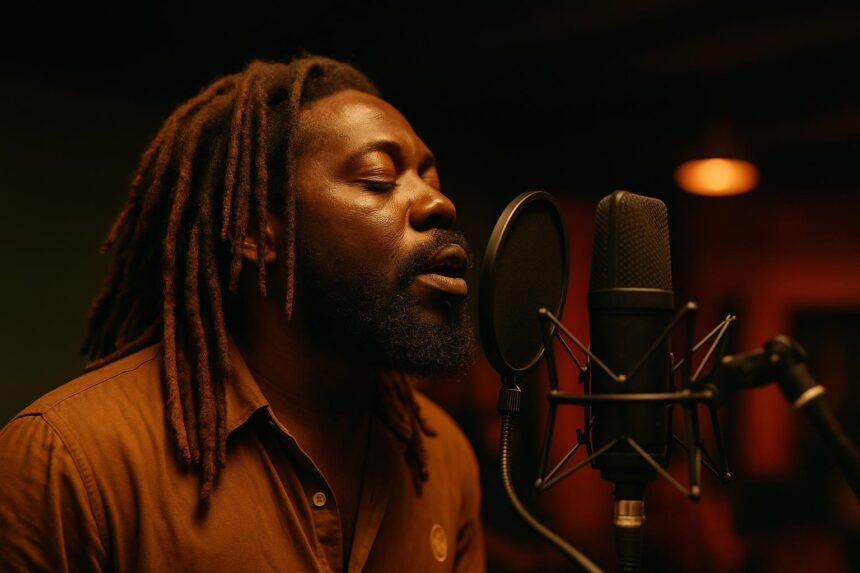Zola Cultural Center opens 2024 project call
For years, many emerging Congolese artists rehearsed in living rooms and corridors, hoping for a stage. In Brazzaville’s Talangaï district, the expanded Zola Cultural Center promises a professional path by opening its 2024 call for projects.
- Zola Cultural Center opens 2024 project call
- Skills training and creative networking
- Boosting artistic mobility across Congo
- Facilities that nurture talent
- Building partnerships for culture funding
- Success stories from recent residents
- Plans for a national and regional tour
- Application process and community support
Founded by Leadership Congo in 2018, the centre already hosts concerts, exhibitions and writing labs. Its next programme will pick thirty talents in music, visual arts, comedy, storytelling and performance, guiding them from first draft to paying audience.
Organisers say the goal is as practical as it is artistic: teaching project design, rights management and digital promotion so that creativity becomes a sustainable job. “We want to shift from passion to profession,” explains programme and communication lead Adonis Kiziboukou.
Skills training and creative networking
Accepted artists will follow intensive workshops led by mentors from Pointe-Noire, Kinshasa and Paris, covering stage presence, sound engineering and crowdfunding. Sessions are planned in two-week blocks to fit around family or school obligations commonly cited as barriers by young practitioners.
The curriculum emphasises collaboration. A rapper may be paired with a painter to design a multisensory showcase; a comedian might script a show with a storyteller fluent in Lingala. Such cross-pollination, observes curator Mireille Ndinga, often produces projects that travel better across regions.
Boosting artistic mobility across Congo
Beyond studio walls, the programme tackles mobility—physical and administrative. Participants study transport costs between Brazzaville and Dolisie, visa rules for Gabon, and grants listed in the Ministry of Culture’s 2023 directory. “Knowing how to tour is as vital as knowing how to play,” Kiziboukou says.
The center also invites bus operators, venue managers and customs officers for open Q&A evenings. Last year’s edition helped dancer Ramsès Zembo reduce travel paperwork from ten days to four, enabling his troupe to perform at the Mbounda Maman arts festival on time.
Facilities that nurture talent
Zola’s three-storey compound includes two dormitories, a black-box theatre and an outdoor patio bordered by mango trees. Residency slots—sponsored by private patrons or self-funded—offer up to six weeks of accommodation, rehearsal time and marketing support. All rooms have fibre internet, an asset praised by video artist Pamela Opangault.
Daily audiences are modest—about 120 visitors, according to center wp-signup.phps verified by local newspaper L’Observateur—but the ripple effect is wider online. Short videos of rehearsals regularly hit 15,000 views on TikTok, giving rural audiences a digital window onto city culture.
Building partnerships for culture funding
Though independent, organisers welcome public-private synergy. “Artists need training, not polemics,” stresses Kiziboukou. Requests are filed for equipment grants under the National Development Plan 2022-2026, which earmarks youth-entrepreneurship funds (Ministry of Planning, 2024).
In the meantime, local businesses chip in: a telecom operator pays internet bills; a beverage company sponsors monthly open-mic nights. These partnerships illustrate an emerging model where cultural investment aligns with corporate social responsibility, reducing exclusive reliance on the state budget.
Success stories from recent residents
Twenty-two-year-old singer Emmanuelle “Manu” Bemba joined last season’s cohort. She recalls arriving with only rough melodies recorded on her phone. “By week three I had a full arrangement, a photoshoot and advice on royalties,” she says, crediting producer Doudou Mounkala’s workshop for clarifying streaming revenue splits.
Painter-turn-set-designer Jean-Christian Obassi valued the peer exchange. “A drummer suggested colour rhythms I’d never considered,” he laughs. His debut exhibition, opened in January, sold seven canvases, his first commercial success after four years of searching for a venue.
Plans for a national and regional tour
Zola Cultural Center plans to tour a collective showcase through Pointe-Noire, Oyo and Ouesso, linking northern and coastal audiences. Talks are underway with the French Institute and the Pan-African Music Festival for slot exchanges that could carry Congolese acts onto continental stages.
For now, the call for projects remains open until 30 November. Applicants need a one-page concept and a three-minute video. With doors widening and networks tightening, many in Brazzaville see Zola as more than a building—it is a bridge between local talent and global curiosity.
Application process and community support
Application forms are downloadable at the center or requested via WhatsApp. Candidates must be Congolese nationals, aged 18 to 35, and ready to commit at least ten hours a week. Selected artists will be announced during a public concert streamed live on Télé Congo.
Guidance counselors are stationed at Zola every afternoon to help fill documents for those without steady internet. “No one should miss out because of paperwork,” insists volunteer lawyer Josué Louaka, who has already assisted twenty applicants from Makélékélé. His presence underscores the inclusive spirit driving the programme forward.





















